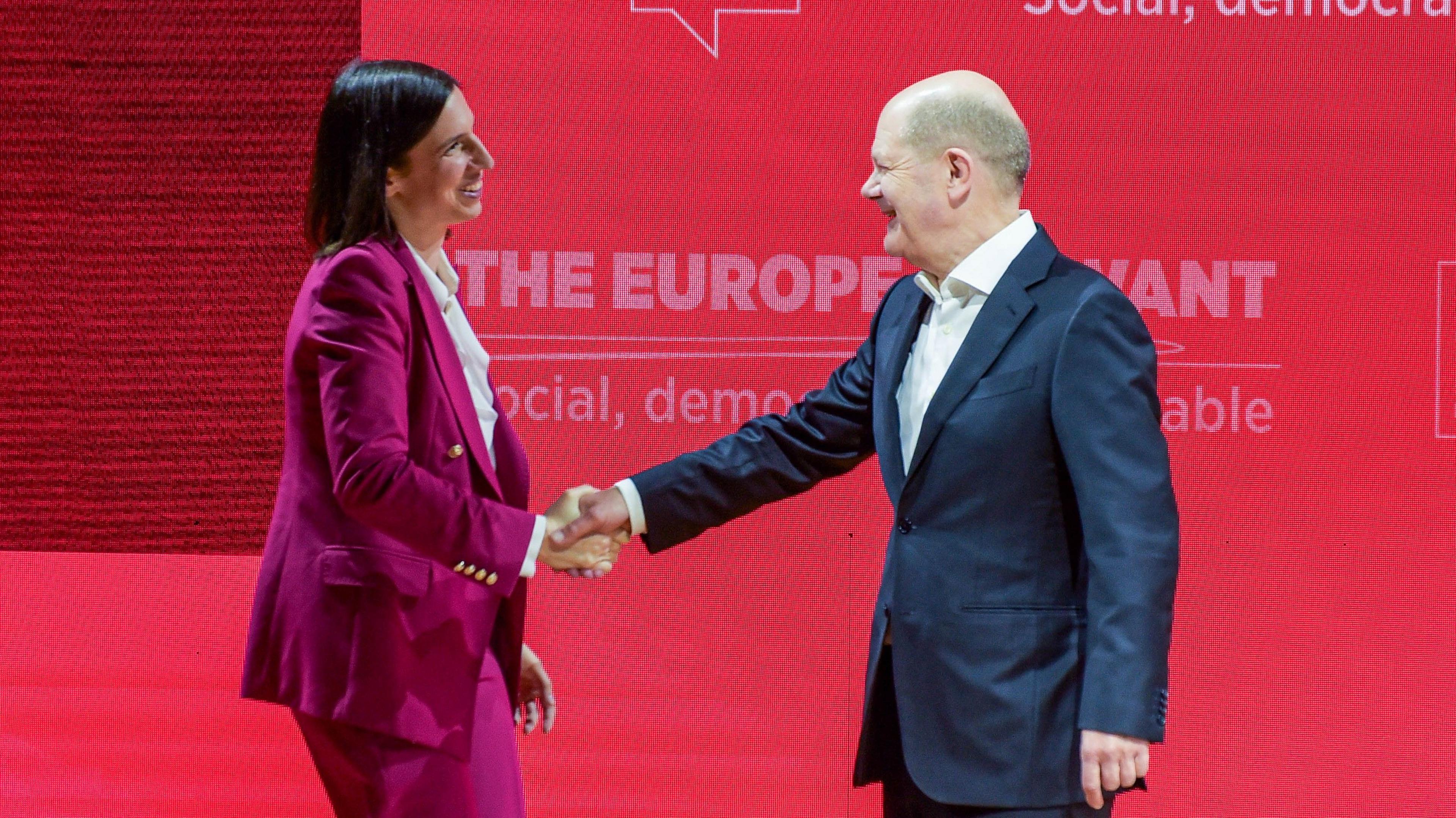First results declared in Irish local elections
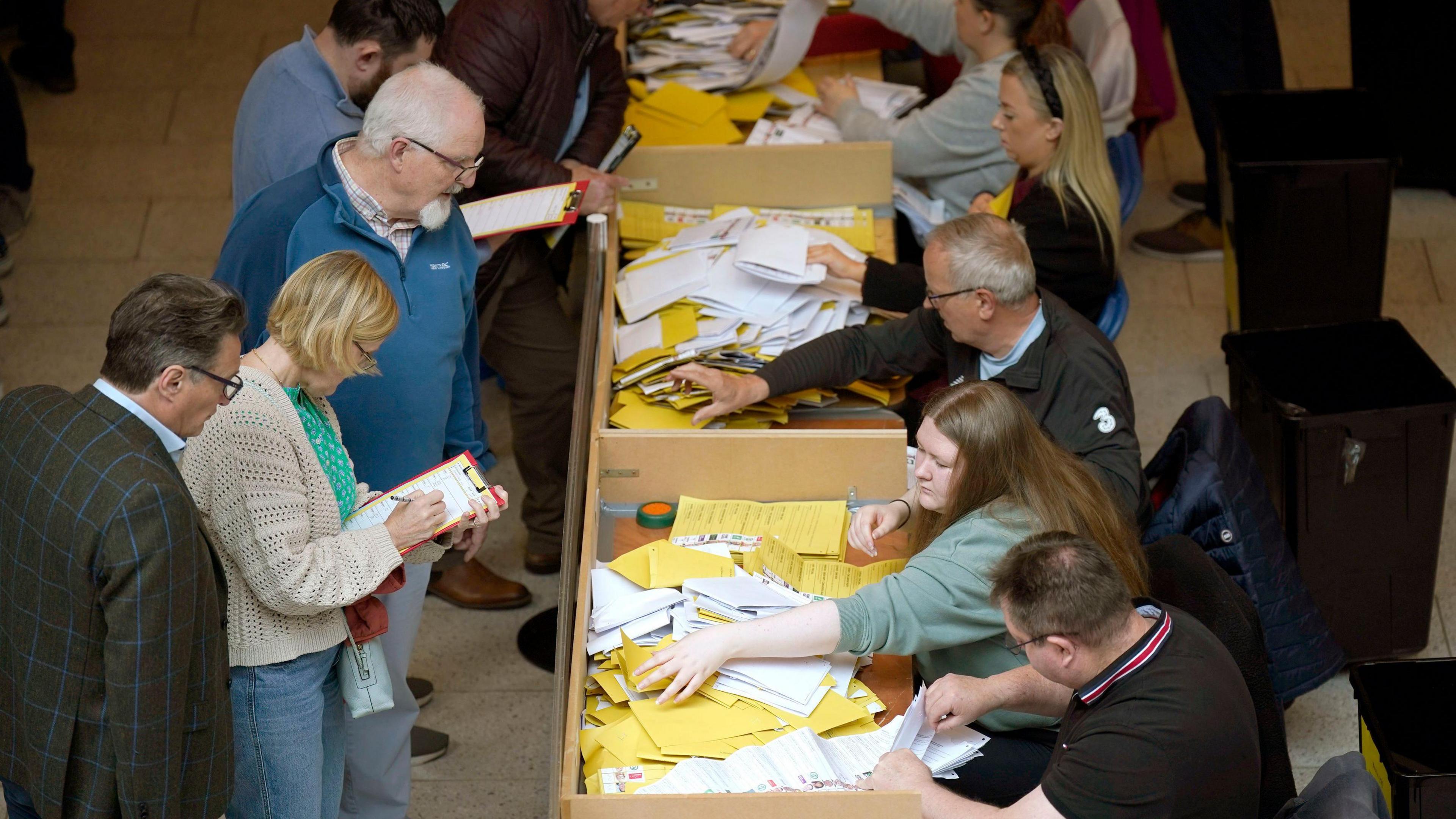
Counting continues in Dublin
- Published
The first of the results in the Republic of Ireland's local council elections have started to be declared.
A total of 949 city and county council seats will be filled across 31 local authorities. However, it could be the beginning of next week before all councillors are declared.
The polls closed at 22:00 local time on Friday.
Voting also took place in the Republic of Ireland on Friday in the European elections, but those ballots will be separated and local elections are counted first.
Irish state broadcaster RTÉ is reporting that current indications suggest the two main government parties, Fine Gael and Fianna Fáil, will likely be in a battle to be the largest party in local government.
Tallies suggest, however, that both parties will lose seats.
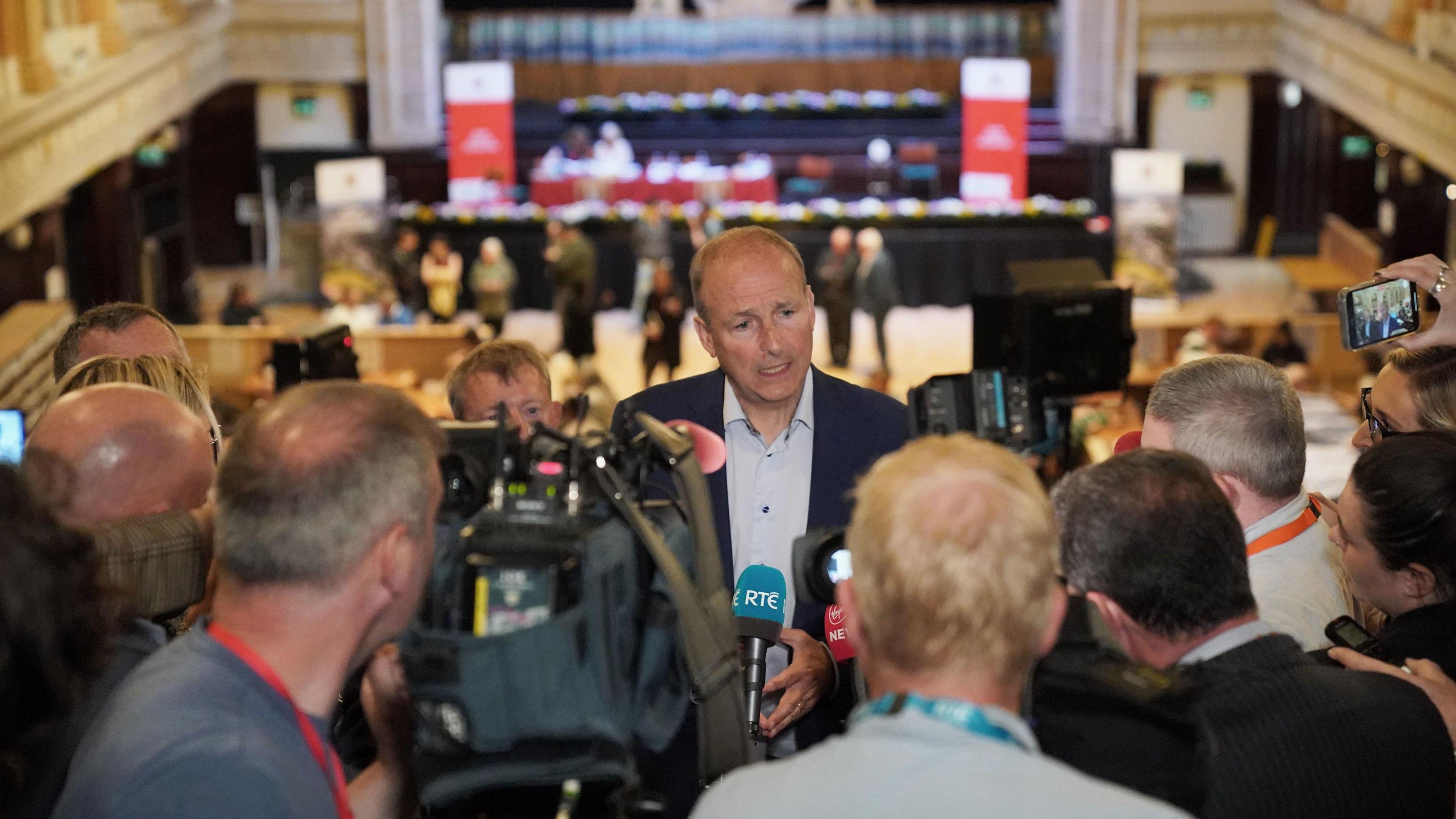
Tánaiste Micheál Martin speaks to reporters in Cork
More than 2,100 candidates had been selected or declared for the local election.
The polls will provide political parties with an insight into voter sentiment.
The current Irish government has been in place since June 2020, when Fine Gael, Fianna Fáil and the Green Party voted to enter a coalition together.
The next election must be held by March 2025.
Speaking to reporters at Cork City Hall, Tánaiste (Irish deputy prime minister) Micheál Martin said the government still intended to "go full-term”.
“Local election results do not correlate the general election results,” the Fianna Fáil politician said.
However local elections can help “in terms of bringing new candidates forward” for general elections, he added.
Paschal Donohoe, minister for public expenditure, said while it was still early days, it appeared his party - Fine Gael - had been successful in "getting out its votes".
"The early tallies show that there is a large majority of people who are willing to vote in a very different way to how extremists and the far right will make the case for," he added.
The full results of the elections will take days to be finalised because Ireland uses a system of proportional representation which allows voters to rank every candidate in each race by order of preference.
The process means ballot papers are sorted and counted multiple times by hand.
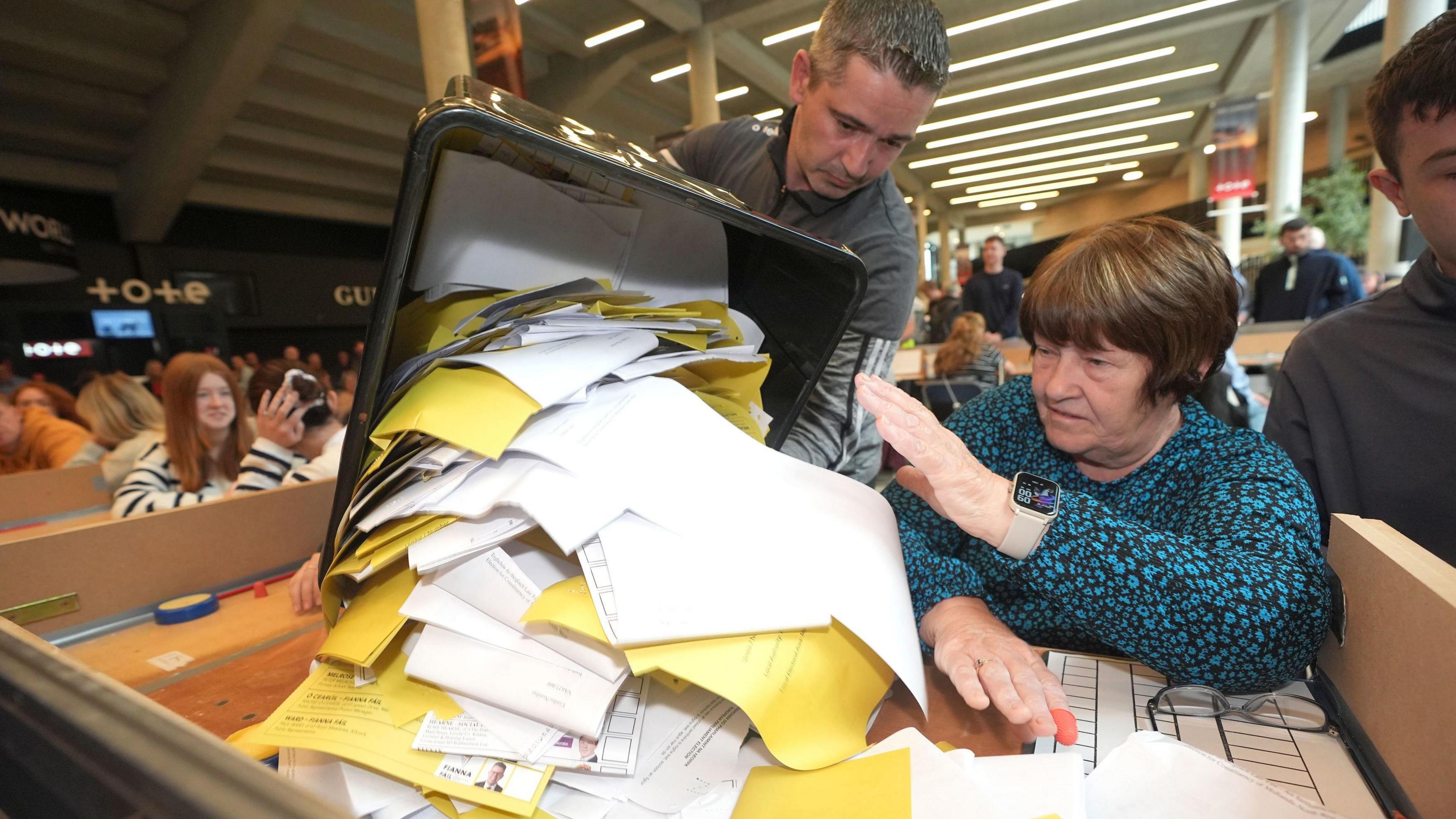
Under starter's orders - counting begins at the Curragh Racecourse in County Kildare
Analysis: A 'defeat' for Sinn Féin?
The two main coalition government parties, Fianna Fáil and Fine Gael, can breathe a collective sigh of relief as their losses are not expected to be on the scale many had predicted.
For Sinn Féin, on the other hand, a victory is being seen by many as a relative defeat.
The main opposition party will have more councillors elected to local authorities this time, but not as many as it wanted or expected.
The party will now have to figure out why, especially at a time when the government has been under sustained pressure on a number of fronts, notably over a long term housing crisis and a more recent crisis around immigration.
One theory is that the party miscalculated and ran too many candidates. But even before polling day, opinion polls were suggesting a drop in popularity for Sinn Féin.
Away from the big parties, the big winners in this election could be independent candidates.
Among those expected to be elected to Donegal County Council are a number of members of the 100% Redress Party.
The party has been campaigning for 100% government redress for thousands of residents whose homes have been crumbling due to defective blocks.
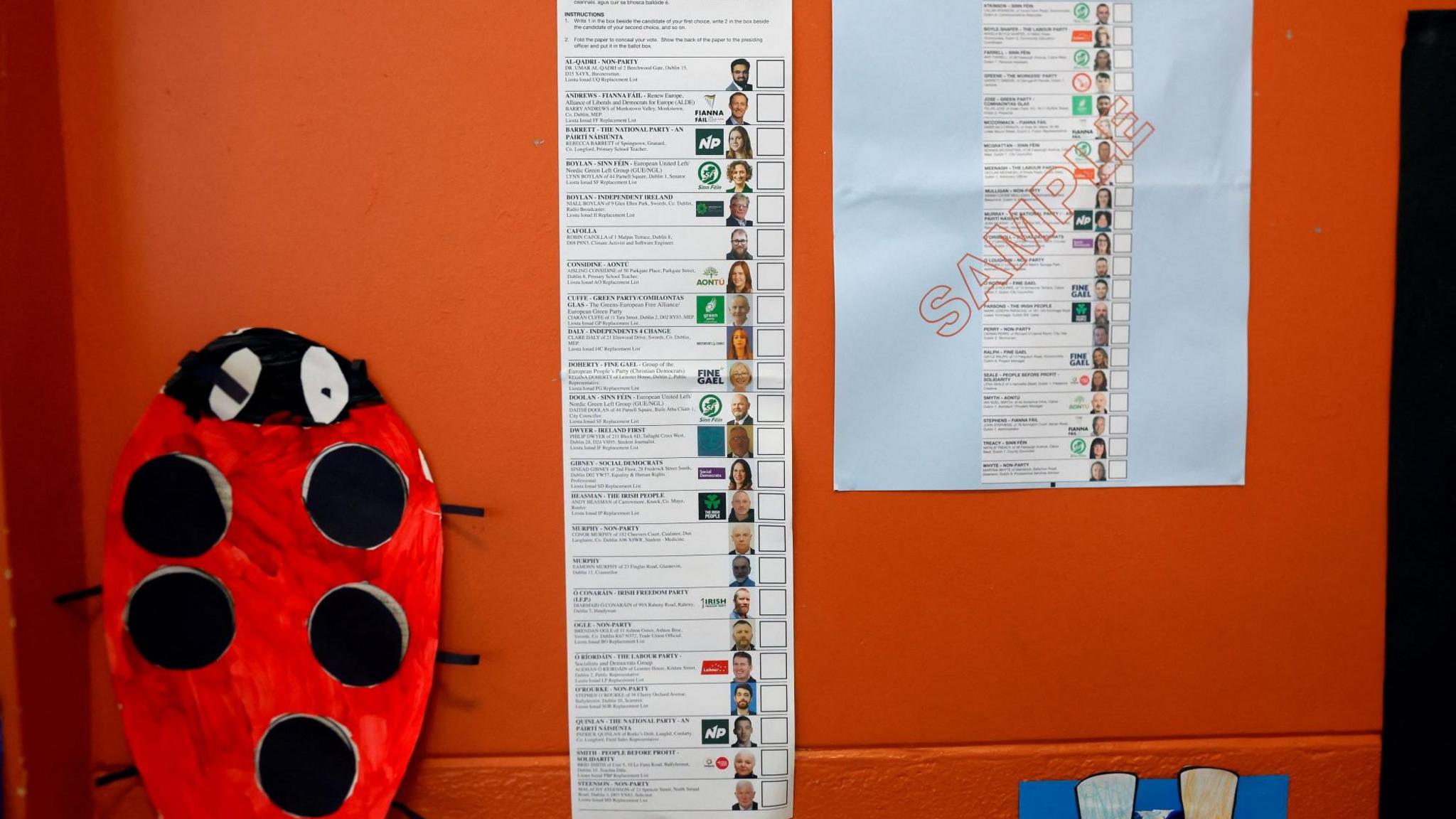
Voters in the Dublin EU constituency were given this ballot paper displaying 23 candidates
Speaking to RTÉ, Sinn Féin's finance spokesperson Pearse Doherty said the party would make gains in some counties, but added there would be a lot of disappointment among new candidates.
It had been a tough election, Mr Doherty said, adding there was still a lot to play for and there were strong indicators coming from the three constituencies for the European election.
Sinn Féin had a disappointing local election in 2019, he added, but nine months later the party saw candidates who missed out being elected to parliament.
He said Sinn Féin would "dust themselves down" and look at "the lessons that can be learned".
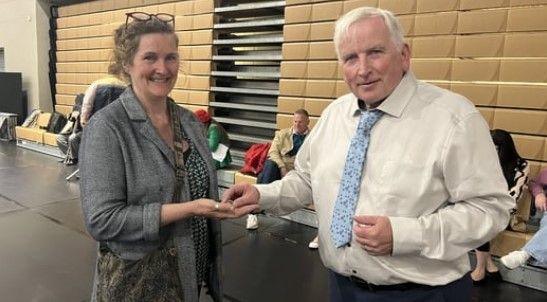
Oona McFarland was delighted to be reunited with her ring
One voter cast more than her vote at her polling station in Bray, County Wicklow.
Oona McFarland was separated from a very special ring when it fell into the ballot box.
Staff at the polling station noted down the number of the box, which meant count staff were extra careful when separating votes.
She was reunited with the ring which is in memory of her late daughter at the count centre on Saturday.
"It is a very sentimental ring, so I'm delighted to have it back," Ms McFarland said.
How many EU seats are being filled?
About 373m people across the EU are eligible to vote to elect 720 MEPs in the European elections.
Voting has been taking place across Europe over four days, and as a result, Ireland will not start counting European votes until Sunday 9 June.
Results cannot be announced until after 22:00 local time on Sunday when voting has ended across Europe.
Fourteen MEPs will be sent back to Brussels from the Republic of Ireland.
Five will represent the constituency of Midlands North-West, a 15-county constituency in which 27 candidates are running.
Five will represent Ireland South, where 23 candidates are running across 10 counties.
And four will represent Dublin, where there are also 23 candidates on the ballot.
Green Party leader Eamon Ryan said his party was at risk of losing its existing MEP seat in Dublin, which is currently held by Ciarán Cuffe.
Speaking to RTÉ News at the RDS count centre in Dublin, Mr Ryan said Mr Cuffe was “in with a chance” of the final seat in the four-seat constituency.
Counting will also take place for the country's first directly elected mayor in Limerick, with 15 candidates vying for the job.
- Published7 June 2024
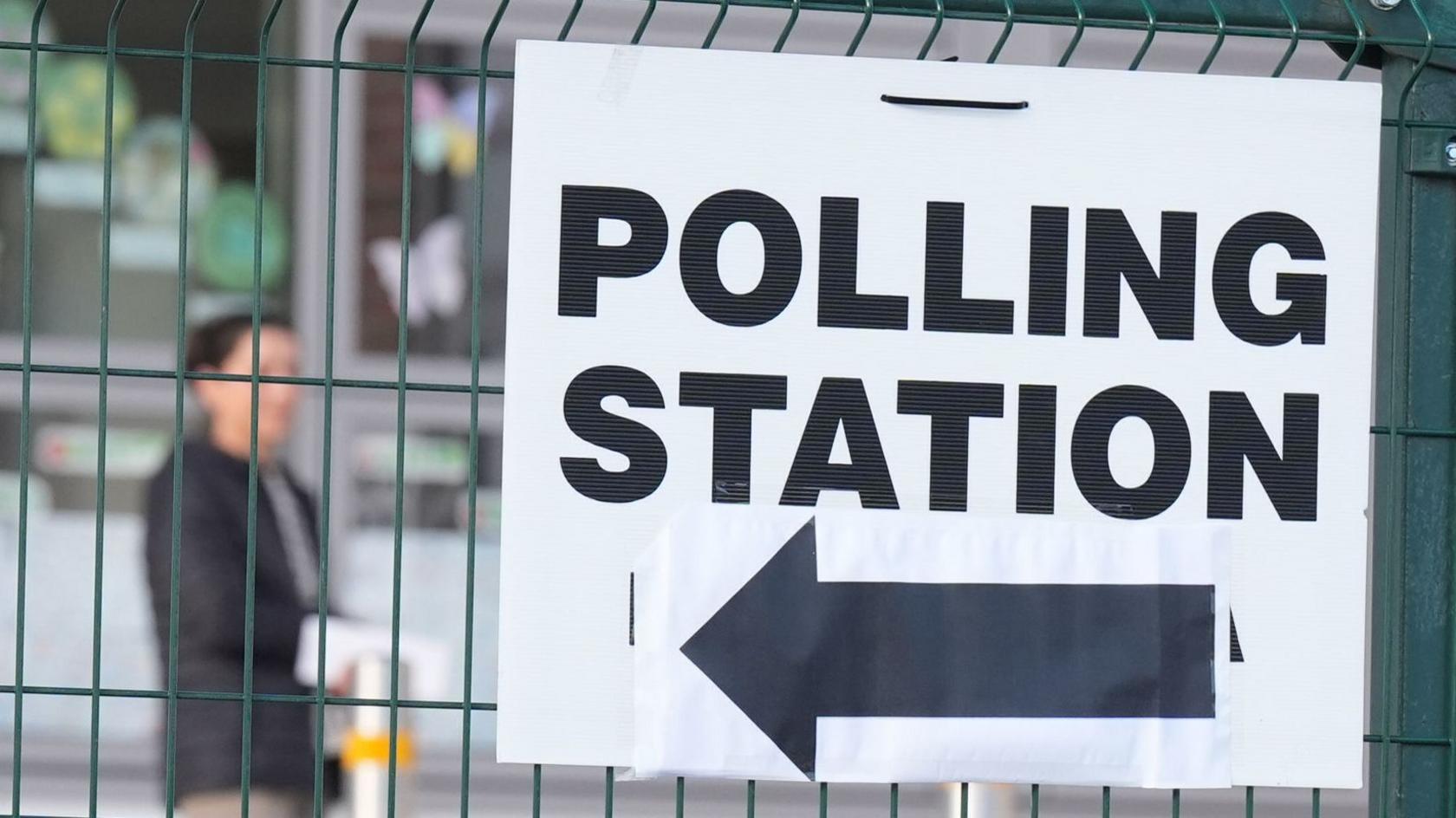
- Published8 June 2024
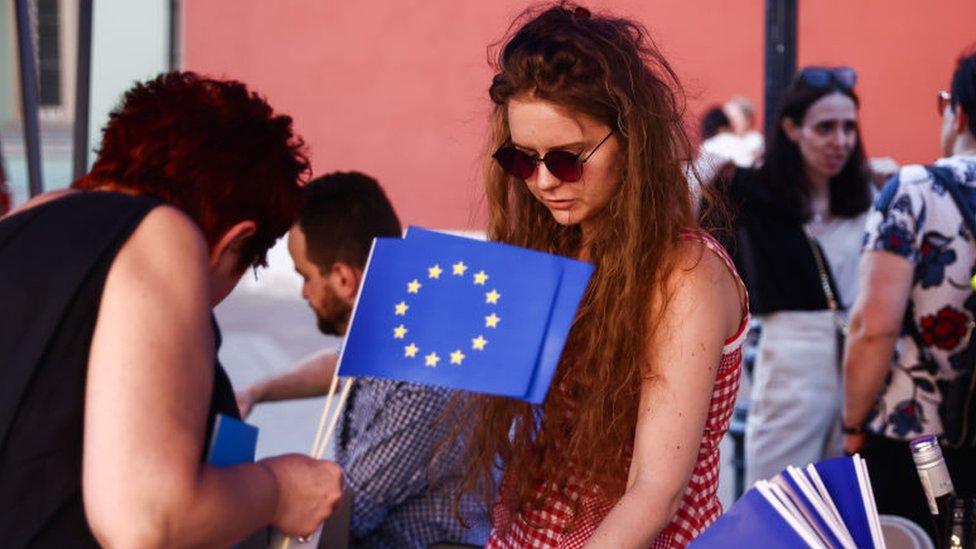
- Published6 June 2024
